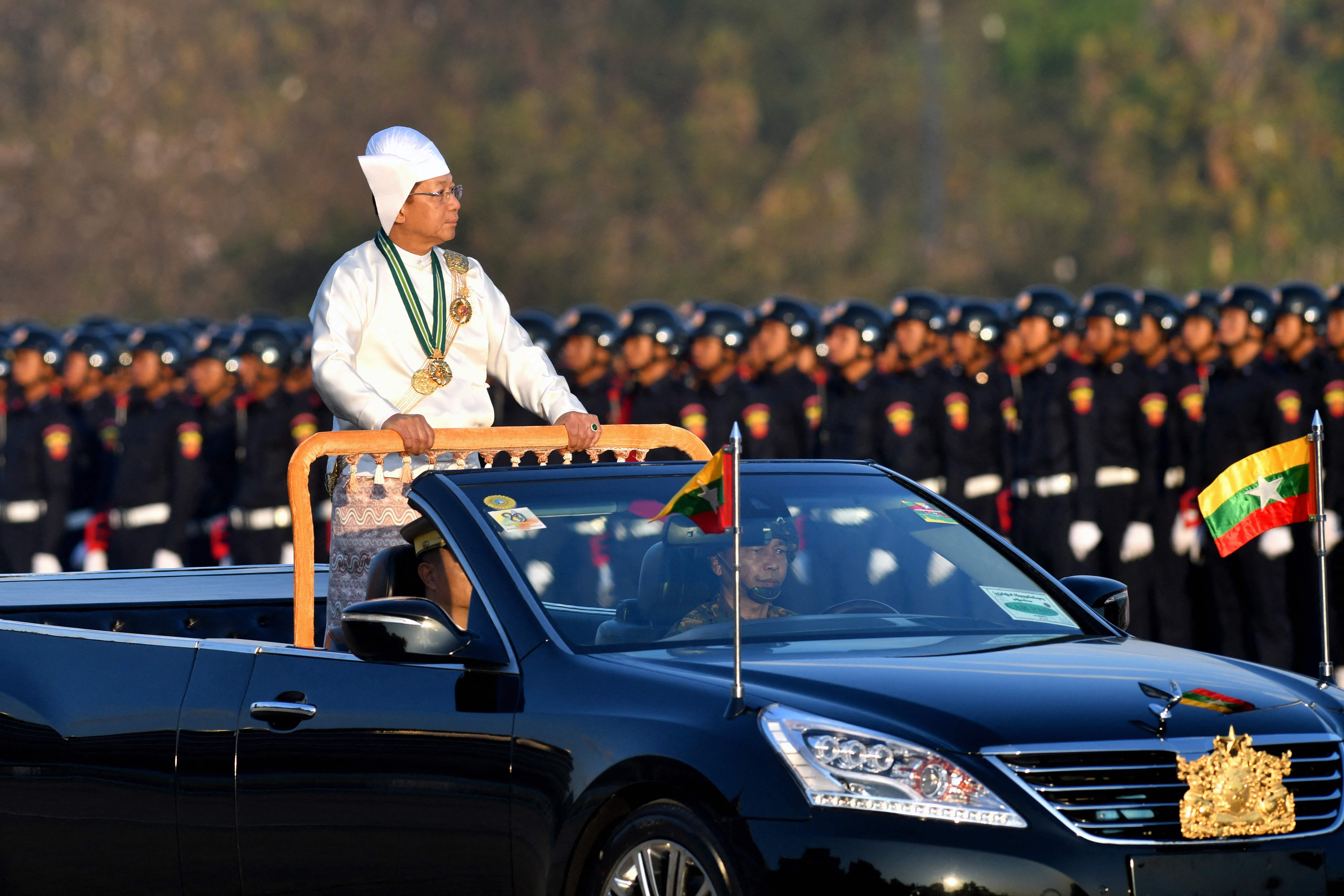Aung San Suu Kyi pardoned for five offences – but doubts remain over whether she will ever be released
Myanmar’s former leader still faces serving 27 years of arrest for 14 of the 19 cases the ruling military junta has brought against her

Your support helps us to tell the story
From reproductive rights to climate change to Big Tech, The Independent is on the ground when the story is developing. Whether it's investigating the financials of Elon Musk's pro-Trump PAC or producing our latest documentary, 'The A Word', which shines a light on the American women fighting for reproductive rights, we know how important it is to parse out the facts from the messaging.
At such a critical moment in US history, we need reporters on the ground. Your donation allows us to keep sending journalists to speak to both sides of the story.
The Independent is trusted by Americans across the entire political spectrum. And unlike many other quality news outlets, we choose not to lock Americans out of our reporting and analysis with paywalls. We believe quality journalism should be available to everyone, paid for by those who can afford it.
Your support makes all the difference.Myanmar’s military junta has reduced the prison sentence for Aung San Suu Kyi, having been pardoned of five legal charges – but the 78-year-old still has more than a dozen cases against her and faces the prospect of being detained for the rest of her life.
Suu Kyi, who won the Nobel Peace Prize in 1991 for her championing of democracy, is still expected to serve a total of 27 years out of the 33 she was originally imprisoned for, a sentence that was widely derided by the international community as an attempt to discredit her and legitimise a 2021 army takeover – while preventing her return to politics.
The head of Myanmar’s military council, Senior Gen. Min Aung Hlaing, granted the clemency order to reduce the sentences in five cases against Suu Kyi in which she was convicted for allegedly violating coronavirus restrictions, illegally importing and possessing walkie-talkies and sedition, according to a report on the state-run MRTV.
The latest announcement was part of an amnesty of more than 7,000 prisoners to mark Buddhist Lent.
A close ally of Suu Kyi told The Independent: “More meaningless words from the military. They are still playing the political game but we are still fighting for her freedom.”
Suu Kyi has always denied all of the charges for which she was convicted, ranging from incitement and election fraud to corruption, and has been appealing against them. Several of her cases are awaiting final appeals. Last week, Suu Kyi moved from prison to house arrest in the capital, Naypyitaw.

Former president Win Myint, who was arrested at the same time as Suu Kyi after the 2021 coup, was also pardoned on some offences by the military government, reducing his jail term from 12 years to eight. He had faced eight cases, but this has been reduced to six.
An informed source said both Suu Kyi and Win Myint would remain in detention.
“She won’t be free from house arrest,” said the source, who declined to be identified due to the sensitivity of the issue.

Daughter of Myanmar‘s independence hero, Suu Kyi was first put under house arrest in 1989 after huge protests against decades of military rule. She was only fully released from house arrest in 2010.
She swept a 2015 election, held as part of tentative military reforms and her party won the next election in November 2020.

But the military complained of election fraud after the 2020 vote and said it had to take power in early 2021 to ensure that the complaints were investigated. Suu Kyi’s party rejected the accusations of election fraud.

Many governments have called for the unconditional release of Suu Kyi and thousands of others who were detained in a bloody crackdown that the junta unleashed against pro-democracy protests following the coup. The United Nations called on Monday for Myanmar to return to democratic rule.
It wasn't immediately clear if any of the released prisoners in the amnesty included some of those thousands of political detainees. According to the Assistance Association for Political Prisoners, a rights monitoring organization, 24,123 people have been arrested in Myanmar since the army takeover. At least 3,857 civilians have been killed by security forces in the same period, the group says.
At the same time as the announcement, state television said it was necessary to extend the state of emergency for another six months because there is still a lot of work to be done to return the country to normalcy and time is needed to prepare for an election. That proposed election will now be delayed by that extension.
The clemency also came three weeks after the Thai foreign minister, Don Pramudwinai, met Suu Kyi in prison, becoming the first foreign visitor to be granted access to her since she was detained. Mr Don told journalists she was in good health and conveyed her willingness to engage in talks to resolve the crisis gripping her nation.
Suu Kyi has been unable to give her version of the 9 July meeting, said to have lasted about an hour-and-a-half. Myanmar's military confirmed the meeting had been held, but said it had no details because its was one-on-one between the ousted leader and the Thai diplomat.
One diplomatic source described the latest pardons as a “cosmetic move”.
“This is a signal to the international community - without doing anything substantive,” said the source who declined to be identified.
Join our commenting forum
Join thought-provoking conversations, follow other Independent readers and see their replies
Comments